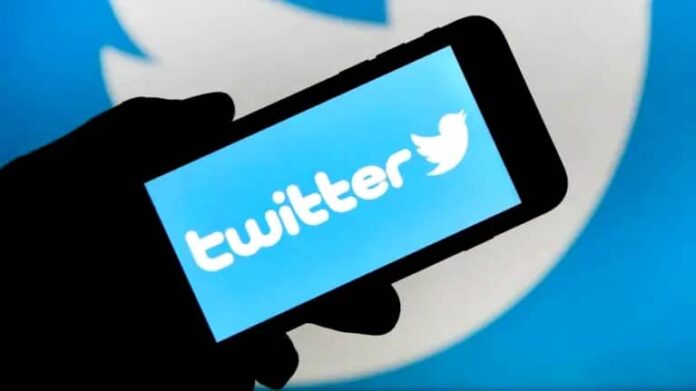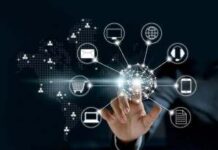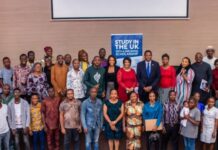The Prism Called Twitter in Nigeria
By Anthony Kila
TECHDIGEST – This week makes it roughly 10 weeks since the Nigerian government made the radical move of placing an indefinite suspension on Twitter and by so doing, restricting arguably one of the top three most popular microblogging site in the world from operating in Nigeria and banning Nigerians from using it. Since that ban, Nigerian media houses too have been restricted from using the social media handle to interact with readers, viewers and listeners and from referring to twitter as a source of news.
To many observers, the chronicles of events that led to the great ban is quite clear and simple.
Act 1: Two days to the official banning of Twitter, Nigerian President Muhammadu Buhari via his verified Twitter handle posts a comment via Twitter warning those “misbehaving” in the South-east of the country. In his own words: “Many of those misbehaving today are too young to be aware of the destruction and loss of lives that occurred during the Nigerian civil war. Those of us in the fields for 30 months, who went through the war will treat them in the language they understand.” His words were read as a threat and unnerving message by many and comments condemning his Tweet abounded in Twitterland.
Act 2: Nigerian government through the Information Minister, Lai Mohammed announces the ban on Twitter. Mobile phone networks and other internet services providers were then ordered to block access to Twitter and they duly complied. To support and strengthen the position of the Information Minister, the Attorney General of the Federation and Minister for Justice also joined the act to announce immediate prosecution of offenders of the Federal Government ban on Twitter operations in Nigeria, telling the public prosecutors to swing into action against anyone, individual or corporate entity that dares to err.
On every occasion, the Nigeria Government insists: the ban on Twitter is more about commercial and fiscal compliance and less about daring to delete the President’s post. Twitter makes money in Nigeria but does not pay tax plus it is a platform for fake news the government explains. To many observers however the matter is really simple: “the witch wailed yesterday and the baby dies today, who does not know that the wailing of yesterday is cause of today’s death,” they conclude.
A lot has been said about the ban of Twitter in Nigeria, here are few more reflections that come to view when one looks at Nigeria through the prism of the use and ban of Twitter. The images that come out of that prism say a lot about us as a people and a country.
Ultimately, beyond and above the reasons that lead to the banning, history will record that with the ban on Twitter, Nigeria joins an exclusive club of just eight countries in the world that have banned social media networks, if that number impresses you then do find out and have a look at the countries with whom Nigeria now share listings. Let us name just two here to give you a taste: Iran and North Korea.
Read Also:
Let us assume and believe the government’s words that the Twitter ban was neither a petty act of vengeance nor an attempt to gag an increasingly disenchanted and exasperated public, but an act to regularise and earn revenue from a profit-making organization. Seen through the prism of the Twitter ban, it will appear Nigeria of today is a country wherein government in a decree like style of the bad old military days bans and then explains why later. It disrupts and then asks for order.
Those time tested basic democratic and libertarian concepts and processes of dialogue, warning, negotiations, court orders, and general care that government accord private entities as a symbol of respect for liberty and innovation in progressive and prosperous societies seem not to matter here.
Twitter is just one organization, but its users are more. We shall dwell on the quantitative dimension of the users of Twitter later, for now let us look at the qualitative side of things. Due to its format and some other factors, analyst agree that Twitter is arguably one of the most sophisticated social media handles out there. Though easily open to all and thus used by all sorts of characters, Twitter users are generally more educated and more informed than the average population. They use the platform to seek information and validation, interact with similar and higher minds, sell and buy, love, learn and laugh. With a click of button, thousands sometimes millions are reached and engaged on issues that range from the absurd to the intense, on Twitter lives have been saved, career made and institutions corrected. We might just remember here that most public offices and public office holders also engage regularly on Twitter.
Yet with so much going on that platform and to so many important sectors of this society, a few individuals by virtue of the power invested in them decided in a short space of time to freeze and stop all. How could they and in whose name? History will ask tomorrow and some of us as asking today.
Elementary Watson: Because they can. It seems clear to those in power that anything goes and nothing will happen to them. No office to hold them to account and no one to fear.
There are some debates going on about the actual number of Twitter users in Nigeria; some say over 39 million others say a lot less. Even if they were just 1 million, logic will make one think that if you curtail the freedom of expression of 1 million people, elites that can fight back and mobilise others, there would most likely be a heavy civic backlash. Amazingly not in this story.
Act 3: The citizens, the elites did not stand their ground let alone fight back. Legislators did not get enough pressure from their most sophisticated constituents to say this cannot stand, the courts were approached by the few usual suspects. What did majority of our elites do? They simply conformed or look for way to bypass irritation: They simply moved on to the virtual private network (VPN).
Just like their analogue parents went for generators instead of insisting on stable electricity, and SUVs rather than good roads. The digital children are today using VPN instead of insisting this is wrong and must not be allowed.
Anthony Kila, a professor, is a director at the Centre for International and Advanced Professional Studies (CIAPS), Lagos




















